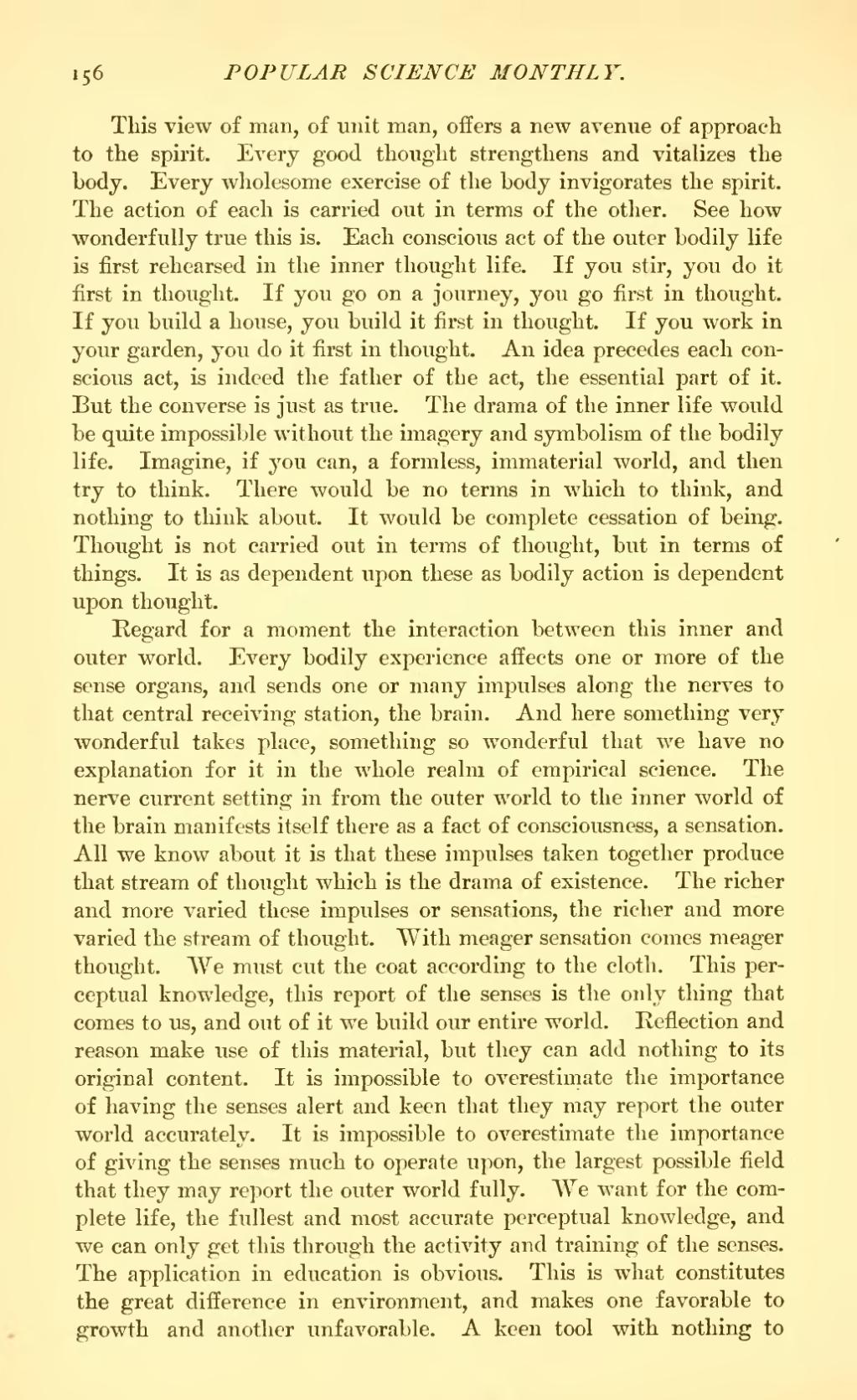This view of man, of unit man, offers a new avenue of approach to the spirit. Every good thought strengthens and vitalizes the body. Every wholesome exercise of the body invigorates the spirit. The action of each is carried out in terms of the other. See how wonderfully true this is. Each conscious act of the outer bodily life is first rehearsed in the inner thought life. If you stir, you do it first in thought. If you go on a journey, you go first in thought. If you build a house, you build it first in thought. If you work in your garden, you do it first in thought. An idea precedes each conscious act, is indeed the father of the act, the essential part of it. But the converse is just as true. The drama of the inner life would be quite impossible without the imagery and symbolism of the bodily life. Imagine, if you can, a formless, immaterial world, and then try to think. There would be no terms in which to think, and nothing to think about. It would be complete cessation of being. Thought is not carried out in terms of thought, but in terms of things. It is as dependent upon these as bodily action is dependent upon thought.
Regard for a moment the interaction between this inner and outer world. Every bodily experience affects one or more of the sense organs, and sends one or many impulses along the nerves to that central receiving station, the brain. And here something very wonderful takes place, something so wonderful that we have no explanation for it in the whole realm of empirical science. The nerve current setting in from the outer world to the inner world of the brain manifests itself there as a fact of consciousness, a sensation. All we know about it is that these impulses taken together produce that stream of thought which is the drama of existence. The richer and more varied these impulses or sensations, the richer and more varied the stream of thought. With meager sensation comes meager thought. We must cut the coat according to the cloth. This perceptual knowledge, this report of the senses is the only thing that comes to us, and out of it we build our entire world. Reflection and reason make use of this material, but they can add nothing to its original content. It is impossible to overestimate the importance of having the senses alert and keen that they may report the outer world accurately. It is impossible to overestimate the importance of giving the senses much to operate upon, the largest possible field that they may report the outer world fully. We want for the complete life, the fullest and most accurate perceptual knowledge, and we can only get this through the activity and training of the senses. The application in education is obvious. This is what constitutes the great difference in environment, and makes one favorable to growth and another unfavorable. A keen tool with nothing to

